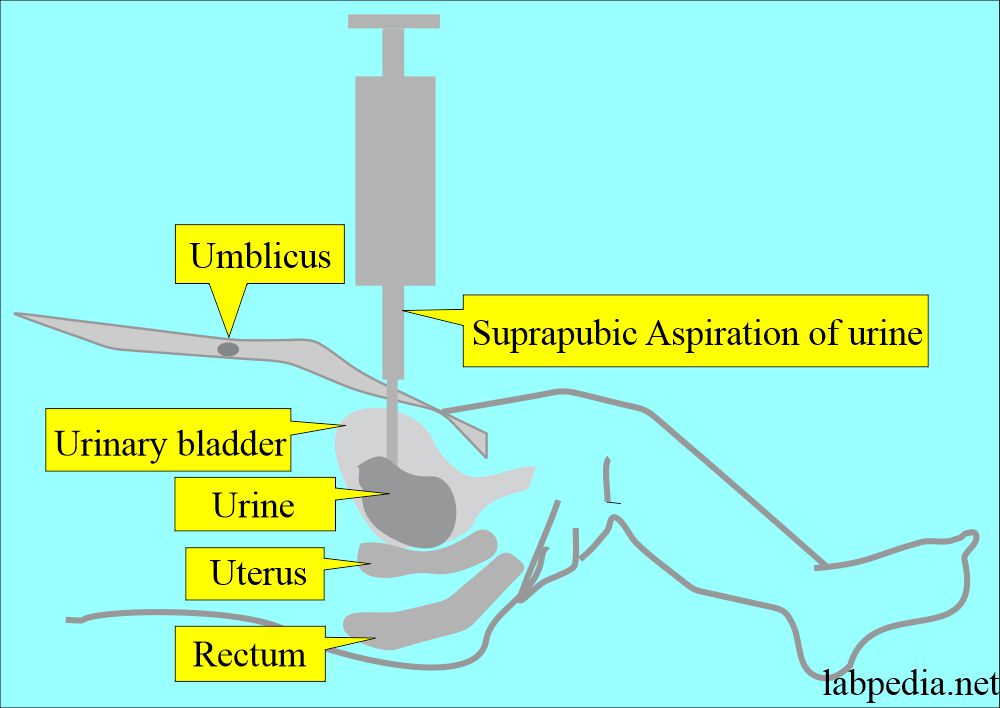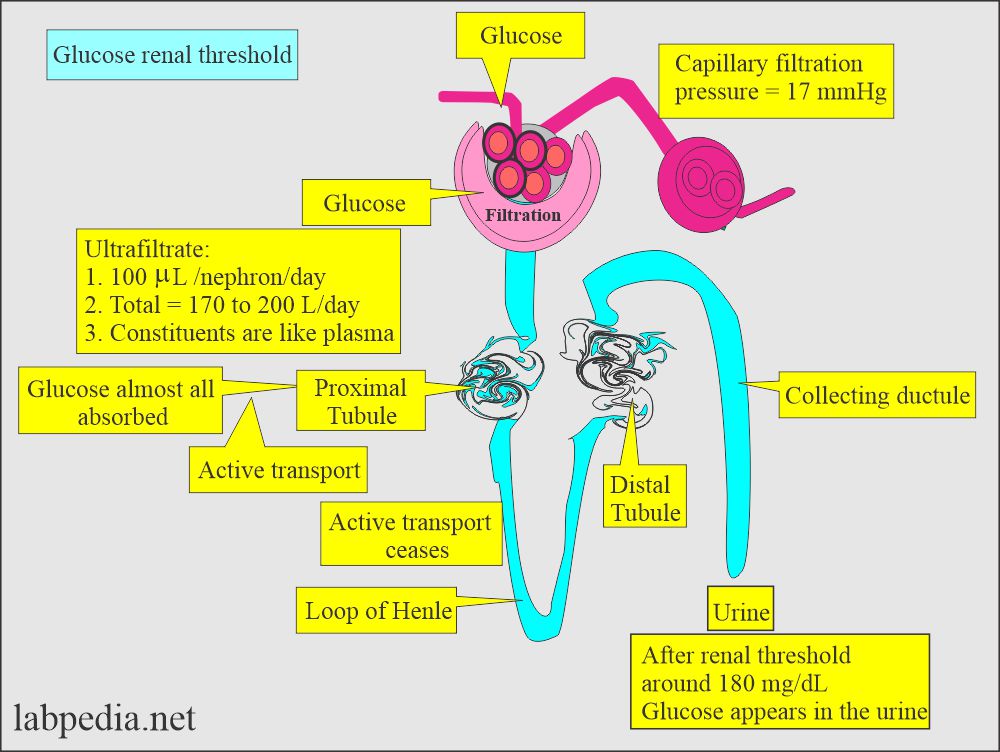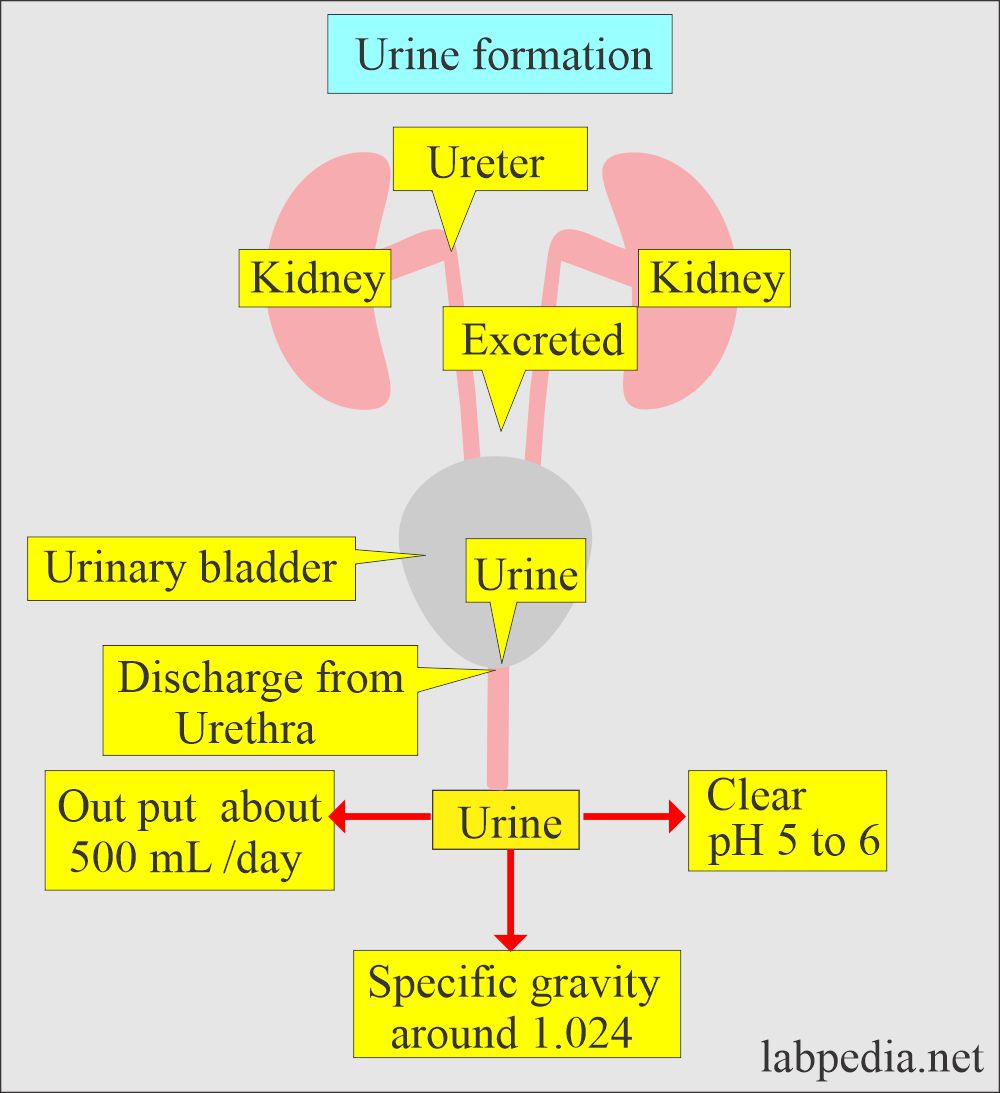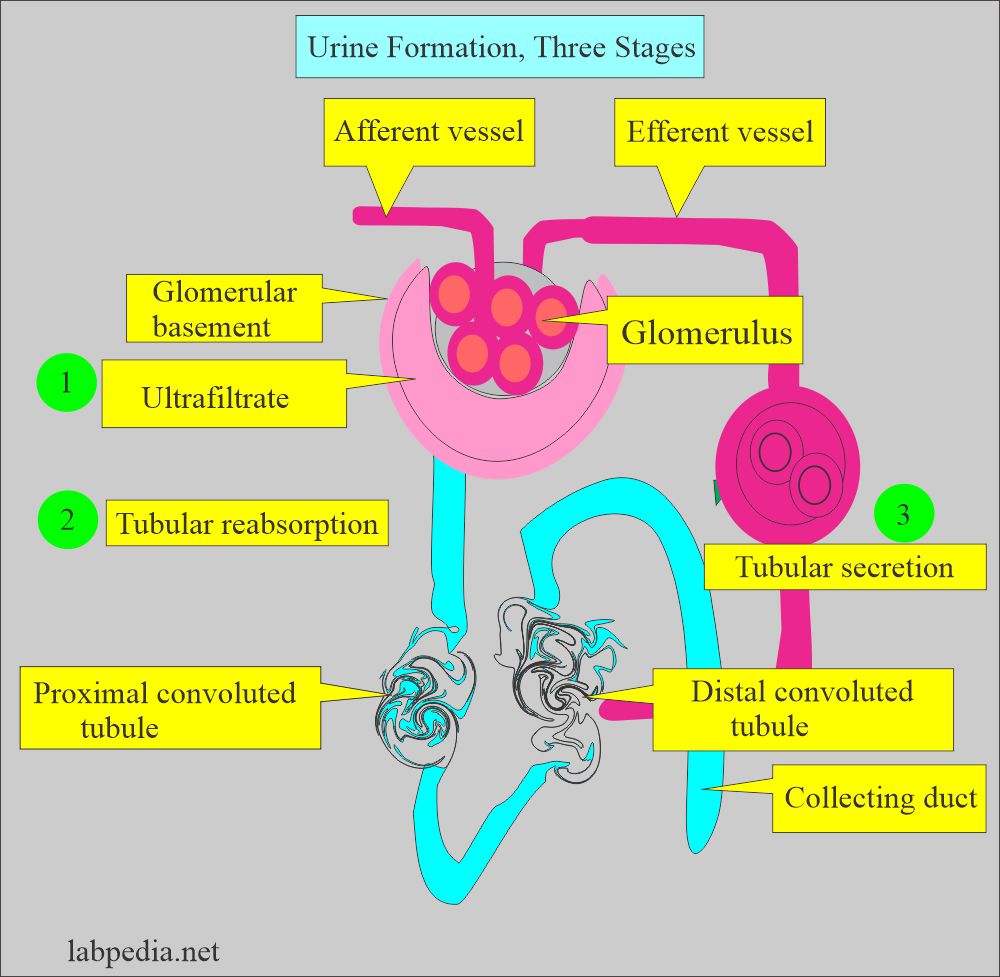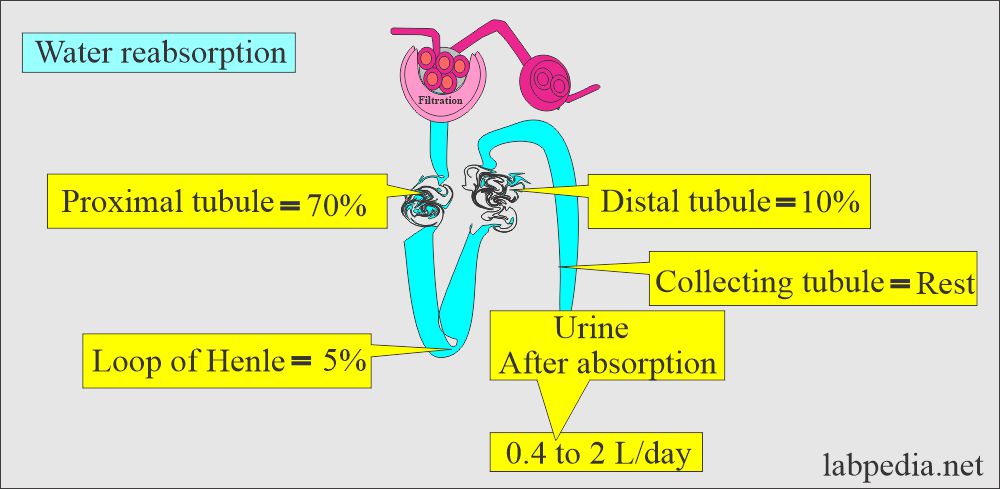Urine Samples Type, and Composition
Urine samples Types
What are the indications of urine examination?
- This is part of the routine workup of a patient.
- It can diagnose urinary tract infections.
- It can diagnose diabetes.
- Diagnose any abnormality of metabolism.
What are the types of Urine samples?
- Random sample:
- This is a diluted urine sample and may give an inaccurate interpretation of patient health. However, it is best to do microscopy to evaluate WBC or RBC.
- First Morning sample:
- This is the best sample for microscopy and urine analysis. It is concentrated urine because urine remains in the urinary bladder throughout the night.
- This will contain an increased concentration of analytes and cellular elements.
- Urine must have remained in the bladder for 8 hours and is considered the first-morning sample.
- Urine for sugar (Postprandial 2 hours):
- The postprandial 2-hour sample was collected after 2 hours of a high carbohydrate diet.
- Midstream clean catch urine:
- This sample is needed for the culture and sensitivity of urinary infections.
- The patient is advised to clean the urethra and discard the first few mL of urine.
- Now, the midstream of the urine is collected in the sterile container.
- 24-Hour of a urine sample
- In this case, discard the first urine and note the time.
- Urine will be collected in the container for 24 hours, and the last sample will be put in the container.
- Refrigerate the sample.
- These 24 hours of samples are needed to measure urea, creatinine, sodium, potassium, glucose, and catecholamines.
- Supra-pubic collection of the urine sample:
- It is done in patients who cannot be catheterized; the sample is needed for culture.
- With the help of a needle, a urine sample is collected.
- Catheter collection of urine:
- This is done in patients who are bedridden and can not urinate.
- Pediatric urine sample:
- In infants, special collection bags are made adherent around the urethra.
- Then, urine is transferred to a container.
Urine storage and preservation (Precautions):
- Preserving urine is essential to keeping its constituents intact. Without preservation, the number of bacteria and chemicals in urine will change.
- To prevent bacterial growth, immediately refrigerate the urine.
- Light-sensitive chemicals are protected by keeping the urine in a colored bottle like an amber plastic bottle.
- Precipitation of calcium and phosphate can be prevented by acidifying the urine.
- Freshly voided and concentrated urine is needed to see the crystals, casts, RBCs, and white cells.
- Ideally, urine should be examined within one hour of collection.
- Sodium fluoride can be added to estimate 24 hours of glucose. It inhibits the growth of bacteria.
- 10 ml of HCl (6N) is added to the containers to estimate VMA.
What is the Pathophysiology of urine?
- The kidneys continuously form urine.
- This process is basically the ultrafiltration of plasma or blood, where glucose, amino acids, water, and important metabolically active substances needed for the body are absorbed.
- Ultrafiltrate has constituents like plasma, so this is called ultrafiltrate.
- Each nephron (one glomerulus unit) can filter 100 µL ultrafiltrate daily.
- The total ultrafiltrate formed is 170 to 200 L/day.
- After absorption, the urine formation is 0.4 to 2 L/day.
How will you summarize the urine formation?
- Ultrafiltrate by the glomerulus and nephron.
- It does not contain large molecular structures like blood cells and large proteins.
- Tubular resorption occurs in the proximal tubule, loop of Henle, and distal consulted tubules.
- It also occurs in the collecting ducts.
- Most necessary chemicals like glucose, amino acids, water, and electrolytes are reabsorbed.
- The loop of Henle concentrates the urine by absorbing the water.
- Tubular secretion leads to waste products such as Hydrogen, Ammonia, Potassium, urea, creatinine, and drugs.
What is the urine composition?
- Urine is a mixture of water, which is about 96% and 4% dissolved substances.
- Urea is about one-half of the dissolved substances.
- The main substances are sodium, potassium, urea, creatinine, calcium, magnesium, phosphate, sulfates, and ammonia.
- An average of 170,000 ml/day of plasma passes from the kidney, and an average of 1200 ml of urine is formed/per day.
What is the composition of the Urine?
- Water 95%.
- Organic substances are 5%:
- Urea. It is 2% of the total.
- Creatinine.
- Uric acid.
- Ammonia.
- Hippuric acid.
- Inorganic substances are:
- Chloride.
- Sodium.
- Potassium.
- Bicarbonate.
- Traces of Ammonia.
- Calcium.
- Phosphate.
- Magnesium.
- Other substances are:
- Hormone.
- Vitamins.
- Medications (Drugs metabolites).
- Cells.
- Casts.
- Crystals.
- Mucous.
- Bacteria.
- Abnormal contents are:
- Pus cells.
- Red blood cells.
- Glucose.
- Ketone bodies.
- Bilirubin.
- Urobilinogen.
What is the role of Kidneys?
- Clear the body waste products.
- Maintain the water and electrolyte balance.
- This selective function in the nephron is controlled by:
- Renal blood flow.
- Glomerular filtration.
- Tubular reabsorption and secretion.
- Urine concentration and dilution occur in the renal medulla.
What are the functions of the kidneys?
- To concentrate or dilute the urine.
- Regulate sodium excretion.
- Regulate Blood chemistry.
- Regulate Fluid balance.
- Regulate nutrient intake.
- Regulate blood pressure.
Questions and answers:
Question 1: How to collect a urine sample in a female child?
Question 2: What is the purpose of midstream urine collection?

